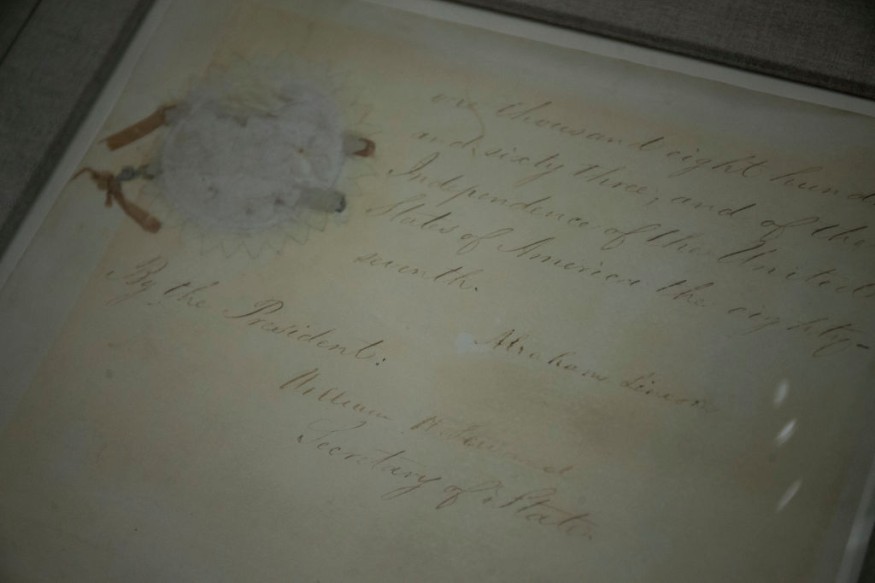National Archives Determined Founding Documents, Including Constitution May Be "Harmful Content"

The National Archives and Records Administration had put on "harmful content" alert on America's founding documents, including the Constitution, the Declaration of Independence, and the Bill of Rights.
NARA had determined it harmful for some users to view due to "outdated, biased, offensive, and possibly violent views and opinion", according to The Blaze report.
The agency had a "Harmful Language Alert" on its entire online catalog, wherein users are redirected to NARA's "Statement on Potentially Harmful Content" when they click the alert link.
NARA explains in their statement that it is their charge to preserve and make available the said historical records, and with that harmful content will be preserved.
The records agency also included specific types of harmful or difficult content that can be found through the documents such as those reflecting racist, sexist, ableist, misogynistic, and xenophobic opinions and attitudes.
Harmful Content Alert
The agency also noted that some of the documents might be discriminatory or exclude diverse views on sexuality, gender, religion, among others, according to The Federalist report.
The documents might also include graphic content of historical events such as violent death, medical procedures, crime, wars, and natural disasters.
The agency explained that they would work in collaboration with diverse communities to bring balance while preserving the history with sensitivity to how these materials are presented to and perceived by users.
NARA's Task Force on Racism had reported earlier that the agency's flagship building serves as an example of "structural racism" due to it lauding "wealthy White men in the nation's founding while marginalizing other communities.
The task force had also recommended that "trigger warnings" be installed with historical content to forewarn users of content.
NARA released a statement to address the possibly harmful content.
The agency noted that its archivist picks what language to use when it comes to determining the materials.
It added that archivists often re-uses language provided by creators or former owners of the materials, noting that it can provide important content.
However, it argued that it can also reflect biases and prejudices, according to American Military News report.
Update Language of the Constitution
Last December, lawmakers on Capitol Hill were aiming to remove the "slavery loophole" from the U.S. Constitution.
Democrats introduced the Abolition Amendment to current the adoption and ratification of the 13th Amendment.
The said joint resolution would remove the "punishment" clause from the amendment, which would effectively allow members of prison populations to be used as cheap and free labor, according to an NPR report.
Sen. Jeff Merkley said that slavery is the nation's original sin, noting that the said loophole has been exploited for far too long to criminalize Black and Brown Americans.
Rep. Lacy Clay said that no American should ever be subjected to involuntary servitude, even if they are imprisoned.
Several companies had used the imprisoned population for their operations. These businesses include Walmart, AT&T, Whole Foods, and Victoria's Secret
This article is owned by Latin Post
Written by Mary Webber
WATCH: The American Constitution's Limitations on Abolishing Slavery - from George Washington's Mount Vermon
Subscribe to Latin Post!
Sign up for our free newsletter for the Latest coverage!
















